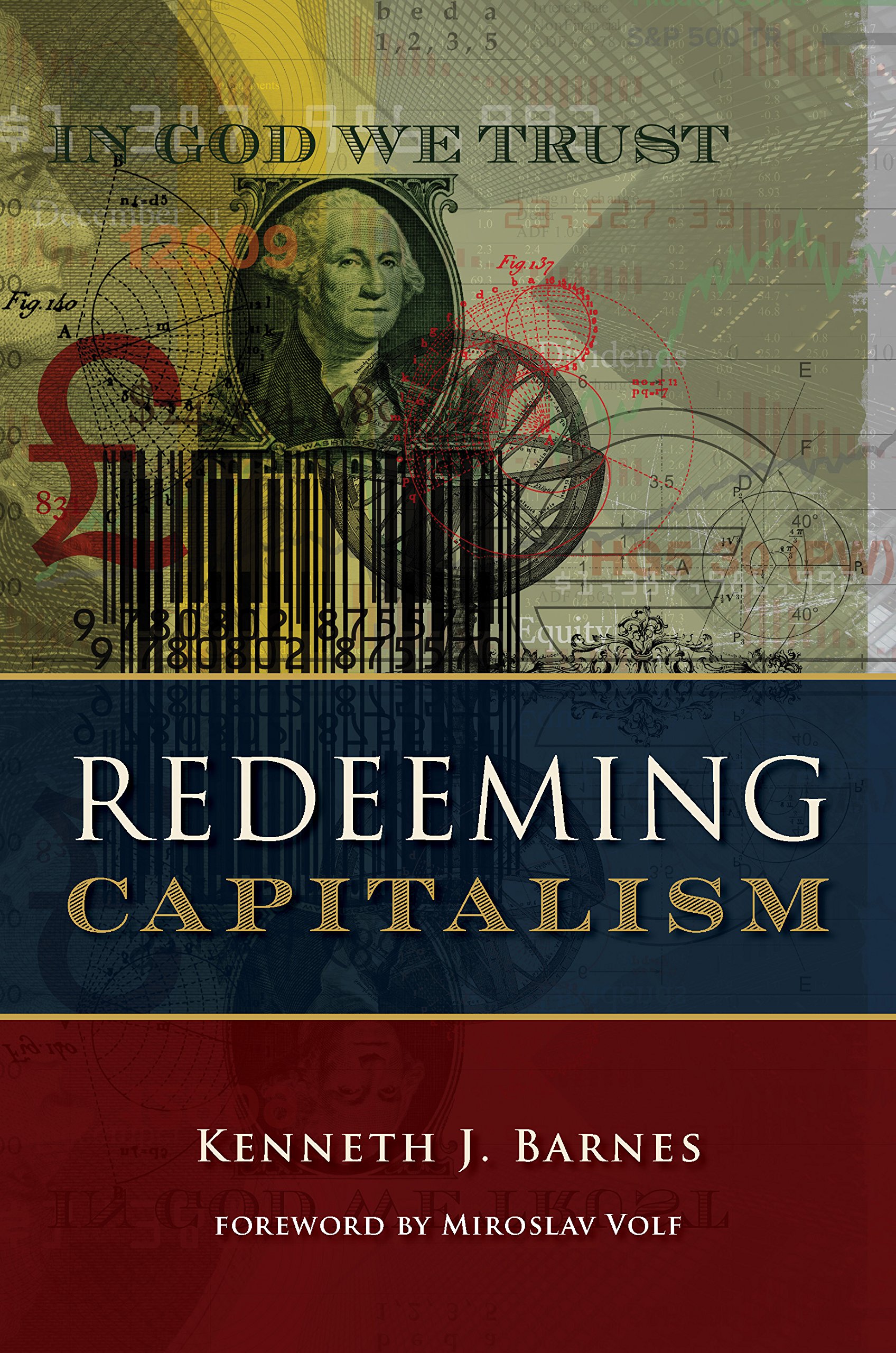Redeeming Capitalism by Kenneth J Barnes
The challenge before us is not to change capitalism's structure but to address the moral vacuum at the core of its current practice, the author argues
 Redeeming Capitalism
Redeeming Capitalism
By Kenneth J Barnes
Eerdmans
ISBN: 978-0802875570
Reviewed by Terry Young
Christians have many hang-ups with money but churches are a tricky place to discuss them, since people with lots of money and those with little of it usually have very different views about it, and may even harbour hostility towards each other.
Christians and money, however, is not an isolated issue: how money is made, earned, saved, taxed, and distributed, these are things we vote about across a spectrum where capitalism and Marxism lie at the extreme ends of political debate. While the sharing culture of Marxism appeals profoundly to many Christians – and rightly so – its atheism has resulted in militantly anti-Christian behaviour for decades. This leaves Christians in a difficult place because the alternative is not particularly moral, either. Enter Kenneth J Barnes, Director of the Mockler Center for Faith and Ethics in the Workplace at Gordon-Conwell Theological Seminary, and an ordained minister who has also conducted business on six continents as a senior international executive.
Redeeming Capitalism makes the case that capitalism is the best we have, but in its current incarnation it is deeply flawed. Moreover, the further it strays from its original ethical moorings the worse it gets and wealth, for instance, can only become ever more concentrated amongst fewer people unless we can work out how to repair or improvise an ethical foundation.
To do this, Kenneth first steps back and summarises the history and theology of what we now call political economy. I really liked this part of the book, beginning as he does with those who wrote the New Testament and the Church Fathers who followed and who interpreted Christian ethics into the world of business, employment, and running the state. In doing so, he reminds us that the very idea of political economy is quite recent.
Although he does not shy away from the New Testament’s ambivalence over wealth, he does not face the full fury of its sternest warnings, either. He sticks to his position that we have nothing better to offer but that we can choose to improve things. It makes sense to me.
So, for instance, he tells us that Aquinas saw four main reasons why people should work:
(a)To feed themselves (and presumably, their families)
(b)To combat idleness
(c)To prevent sexual desire driving inappropriate behaviour
(d)To have the resources to be virtuous by giving alms
It may look like limited a start, but suppressing vice and restoring virtue are central to Kenneth’s redemption project.
He also introduces three key thinkers: Adam Smith, Karl Marx and Max Weber. Because he has taken an historical approach, he is able to explain the genius of each of them in grasping insights that were invisible to others at the time, while still showing how they were prisoners to the times in which they lived. Thus, Smith cannot escape a world where agriculture dominates the economic landscape, nor could Marx see beyond the malevolence of the Victorian mills into a world where machinery was a force for good rather than oppression. Most of all, Max Weber’s protestant work ethic is worth knowing more about, especially when Christianity is being excluded from so much political thinking.
In the absence of an innate ethic, capitalism is shaped by the culture and beliefs of those involved. Christians have helped to shape it in the past and could step up to do so again. However, Kenneth does not see virtue as a bolt-on option to the market. There will always be an ethic, and it comes from people. If Christian virtue is absent, other, less welcome, ethics will prevail.
For me, the elegance of the historical review dissolves slightly when Kenneth looks ahead. Looking back, he distils a few clear themes from the turbulence and complexity of history. While I have no doubt that a restoration of Christian virtue to political economy is essential if we are not to create hell on earth, I’m less clear on exactly what the virtuous measures he proposes would look like in practice. I buy his way of returning to Scripture for spiritual fruit, and for faith hope and love, but there are so many aspects to the virtue he extols that I cannot see a single big idea or a main line for a strategy. That may, of course, be my fault.
My other (mild) disappointment was that I had hoped I might find something fresh around creativity. The explosive economic growth of the past few centuries is factored into how we understand our world, but we know very little about how innovation ticks or how much of it we can rely on in future. The idea that there might be a theological connection between compulsive creativity – even in business – and sound political economy would be a fun one, and the skeleton on which to build such a theory is visible here and there in the narrative. Pursuit of this idea would be especially rewarding if we discovered, say, that the Church Fathers had missed it while Christian Victorians had harnessed it. But these are very minor quibbles in a must-read book for thinking Christians.
Kenneth has left us with material to make a contribution: at home, in the pub, online, or at work. The flow of chapters and his style of unfolding historical developments, makes it accessible and frees the reader from too much detail (there are notes and references for further reading, if you want them). Kenneth has taught me things I didn’t know and shown me were to find out more. I commend his work to you.
Professor Terry Young is an author and member of a Baptist church. He set up Datchet Consulting which combines his experience in industry and academia
Baptist Times, 26/08/2021